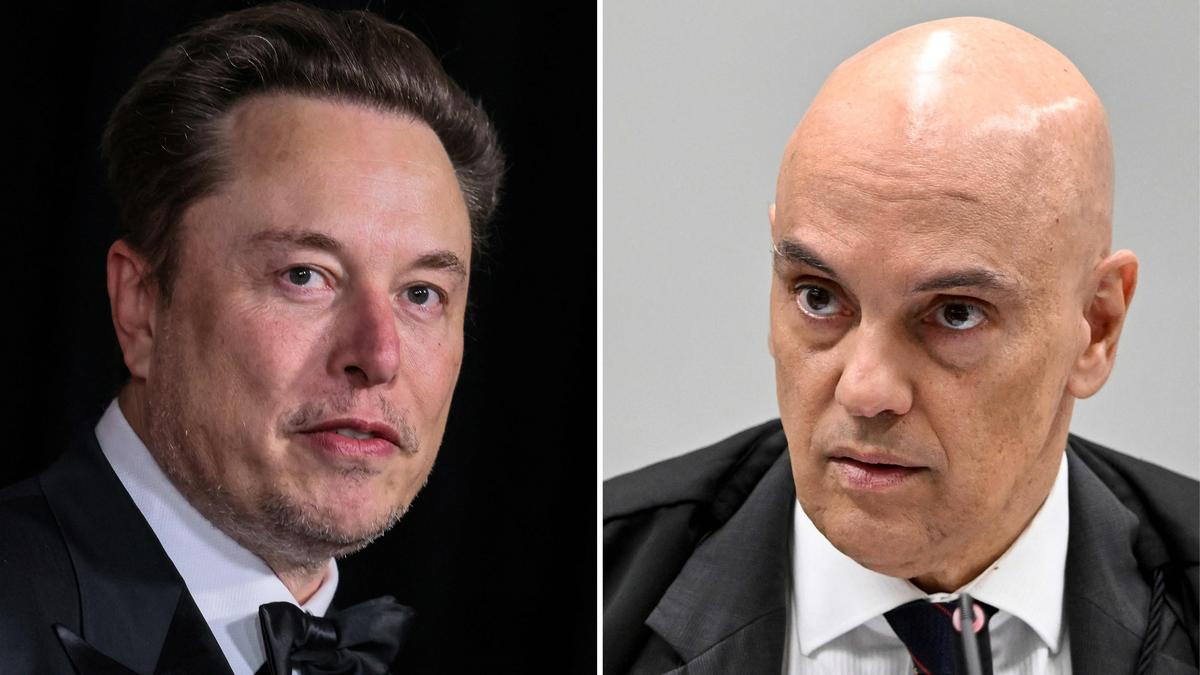Brazil’s decision to block access to X, formerly Twitter, in August 2024, marked a culmination of a protracted conflict between Elon Musk and the country’s Supreme Court Justice Alexandre de Moraes. The block, a significant escalation in the dispute, stems from Musk’s refusal to comply with a court order demanding the appointment of a legal representative in Brazil. This incident underscores the tensions surrounding free speech, misinformation, and the role of social media platforms in national jurisdictions.
The Background: A Clash Over Free Speech and Censorship
The conflict between Musk and Justice de Moraes traces back to Musk’s acquisition of Twitter in 2022 and his subsequent changes to the platform’s content moderation policies. Musk, a self-proclaimed “free speech absolutist,” sought to loosen restrictions on content deemed objectionable by critics, leading to a rise in misinformation and hate speech. This move triggered concerns about the potential for social media to fuel polarization and undermine democratic values.
In Brazil, de Moraes, a vocal advocate for combating misinformation and protecting democratic processes, began to take action against X. He initiated investigations into the platform’s handling of user accounts that spread false information, including those associated with former President Jair Bolsonaro’s right-wing party. This action included ordering the removal of specific content, suspension of users, and ultimately the appointment of a legal representative to facilitate court orders.
The Catalysts for the Blockade: Musk’s Resistance and de Moraes’ Action
Musk’s refusal to comply with de Moraes’ order for a legal representative, and his open defiance of the court’s authority, sparked a critical point in the escalating dispute. Musk accused de Moraes of censorship and tyranny, while the judge defended his actions as necessary to ensure order and protect democratic institutions.
de Moraes cited Brazilian law, which mandates that internet service companies maintain a local representative for communication and cooperation with authorities. He argued that the lack of a representative prevented the platform from responding effectively to court decisions and hindered the ability to remove illicit content. This resistance on Musk’s part ultimately led to de Moraes’ decision to block X entirely in Brazil.
The Consequences of the Block: Disruption and Fallout
The blocking of X in Brazil had far-reaching consequences, affecting both users and the platform itself.
Disruption to Users and Businesses
The ban deprived millions of Brazilian users of access to X, disrupting communication, social engagement, and information sharing. Many turned to alternative social networks and VPNs to circumvent the block. The use of VPNs, while enabling access, raised concerns regarding privacy and security, adding another layer of complexity to the situation.
Businesses reliant on X for marketing and engagement faced disruption, prompting concerns over lost opportunities and market access. The incident highlighted the growing reliance of businesses on social media and the potential risks associated with national regulations and disputes.
Legal Ramifications and Economic Impacts
The legal battle between Musk and de Moraes extended beyond X itself. de Moraes also ordered the freezing of assets belonging to Starlink, Musk’s satellite internet provider, alleging that Starlink was part of the same economic group as X and thus responsible for the fines levied on the platform. This move drew criticism for targeting a distinct company without direct involvement in the original conflict.
The entire incident brought significant economic repercussions. Musk’s decision to offer free Starlink internet to Brazilian users while the dispute remained unresolved was a calculated move to minimize potential losses while challenging the authority of the court. It highlights the complex web of intertwined businesses controlled by Musk and the broader impact of his actions on various sectors.
The Broader Implications: A Battle for Power and Influence
The dispute between Musk and Brazil’s judiciary, despite its specific context, has broader implications that transcend national boundaries.
The Power Dynamics of Social Media and National Governance
The battle between X and Brazil underscores the growing tension between global social media giants and national governments struggling to assert control over content moderation, data privacy, and information flows. It reflects a broader debate about the responsibilities and power dynamics of social media platforms in a globalized and increasingly interconnected world.
The Fight for Freedom of Expression and the Limits of Censorship
The dispute over content moderation on X raises fundamental questions about freedom of expression, the dangers of misinformation, and the legitimate role of governments in regulating online spaces. While governments have a vested interest in protecting their citizens from harm and misinformation, concerns persist about potential abuses of power and the threat to freedom of speech.
The Global Landscape of Social Media Censorship
The blocking of X in Brazil isn’t an isolated event. Many countries around the world have implemented social media bans or content restrictions for various reasons. From China’s Great Firewall to Russia’s crackdown on dissent, the use of social media control is increasing, often employed by authoritarian regimes seeking to stifle opposition and control information.
Takeaway Points:
- The conflict between Elon Musk and Brazil’s judiciary highlights the growing challenges of navigating the complex intersection of free speech, censorship, and national sovereignty in the digital age.
- The blocking of X in Brazil underscores the power dynamics between global social media giants and national governments, each striving to assert their control over information flows and online platforms.
- The legal battle between Musk and Justice de Moraes serves as a stark reminder of the potential consequences of defying national laws and court orders, even for powerful entities.
- The episode raises important questions about the future of social media regulation and the balance between freedom of expression and the protection of national interests.
- The global landscape of social media censorship is increasingly complex, with nations employing a range of tactics to control information, navigate the complexities of digital platforms, and shape online narratives.




